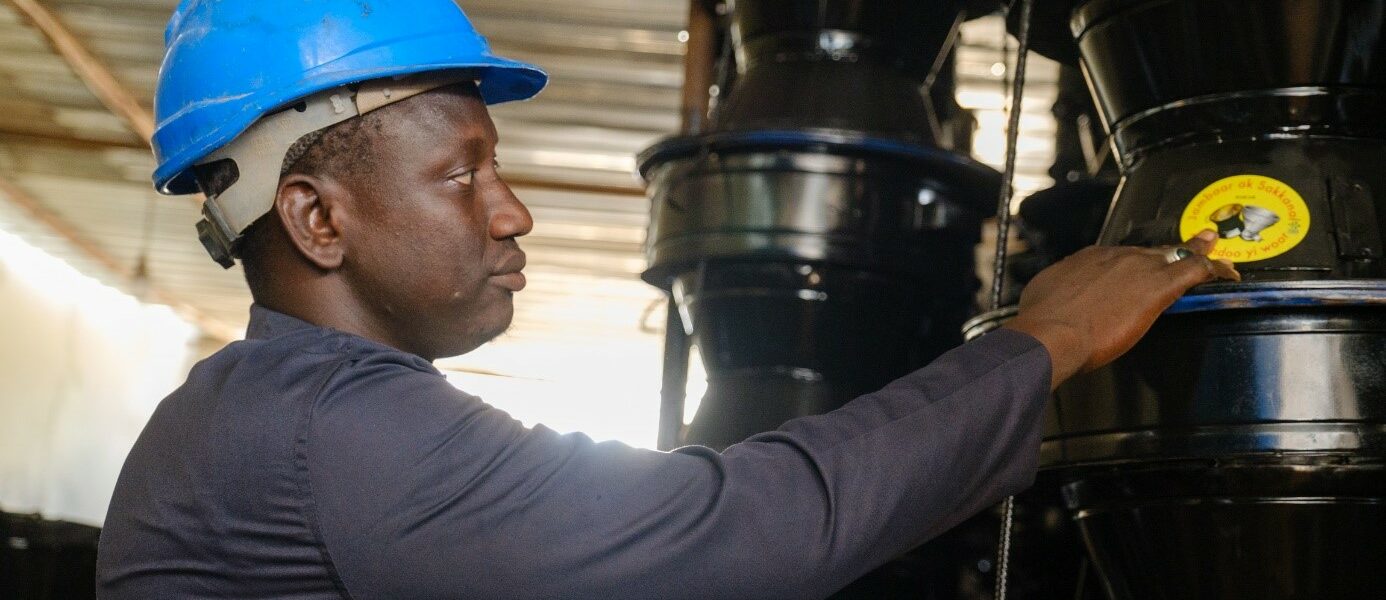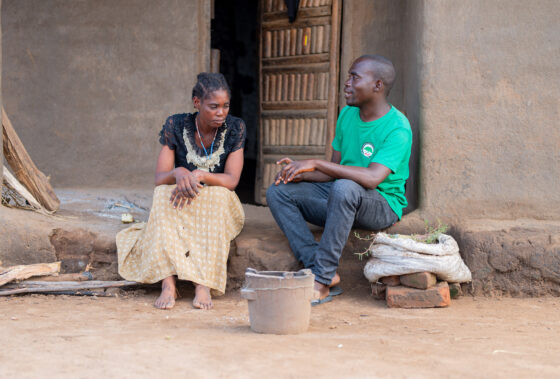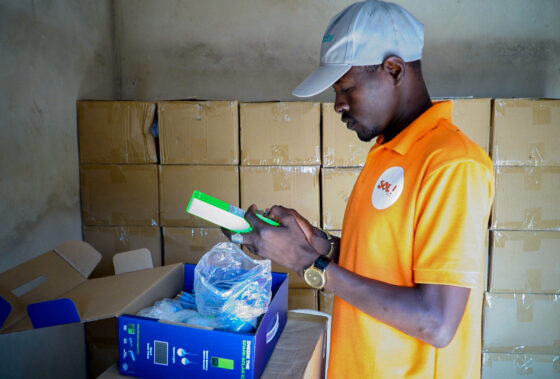More than two billion people worldwide still cook with harmful fuels like wood, kerosene, or charcoal. In Kenya and Senegal, a project is supporting local improved cookstove (ICS) producers – with powerful impacts on health, income, and quality of life. Three entrepreneurs share how their lives have transformed.
In Kenya and Senegal, small local businesses are leading a quiet revolution: with the right tools and support, they are producing clean cookstoves that improve health, create jobs, and protect the climate. Meet three entrepreneurs who are turning simple stoves into powerful engines of change – for their communities and beyond.
Mbathie Sow – Dakar, Senegal
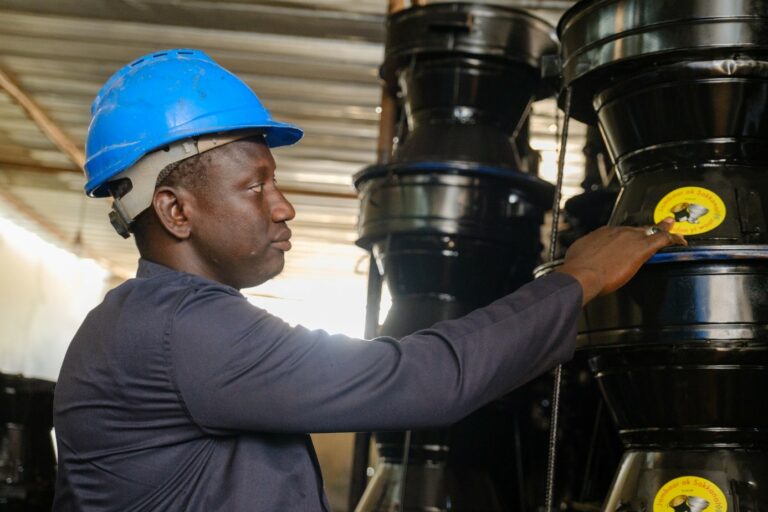
Mbathie Sow has been running his business in Dakar, Senegal since 2012 and initially was able to produce around 600 units per month. However, thanks to a new ICS workshop in one of Dakar’s industrial zones, as well as the professionalisation kit, Mbathie has managed to successfully scale up his production. With now 1,200 ICS units per month he extended his distribution chain to remote areas and has taken on seven new employees, creating opportunities for young people in Dakar. With better access to financing, new opportunities have opened up. As a next step, Mbathie Sowe wants to invest in online marketing via social media to extend his supply network.
Now I transport more than 400 ICS per trip to the city of Ziguinchor since I was able to increase my production. I need to combine car hire with the van transport provided by the project.
Mbathie Sow
Naomi Ngotho – Murang’a County, Kenya
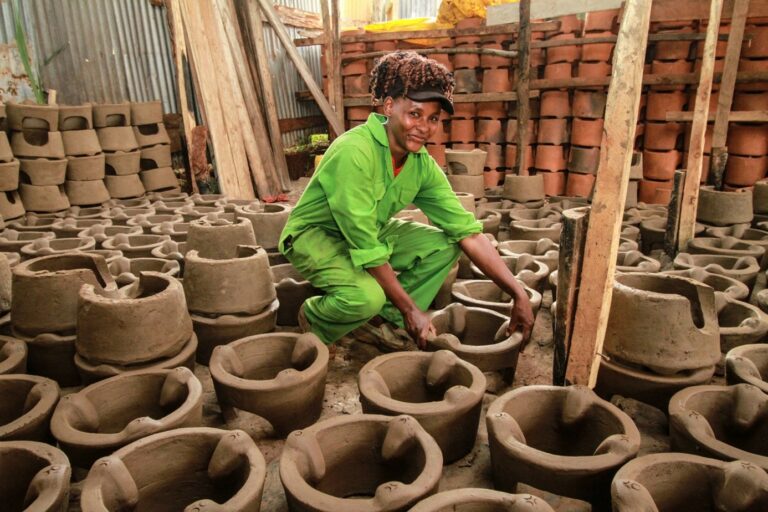
In Murang’a county/Kenya, Naomi Ngotho started her business in 2020 producing around 50 ICS per month. Her entrepreneurial spirit in combination with the support as part of the projects’ professionalisation kit, has rapidly taken her from small-scale, artisanal production to a more professional level, being able to upscale her productivity.. Due to this positive development, she hired six new employees, And Naomi Ngotho’s vision doesn’t stop there; she has ambitious plans to broaden her market reach and putting herself on a strong path toward reaching a business-class operation.
“Before we used to produce 50 stoves per month but currently, we produce more than 200 stoves. When I started, I had no home. Now I own a home, and my children go to the best school. It’s all because of the hard work I put into this project.” – Naomi Ngotho
Bruce Kimanthi – Tharaka-Nithi County, Kenya
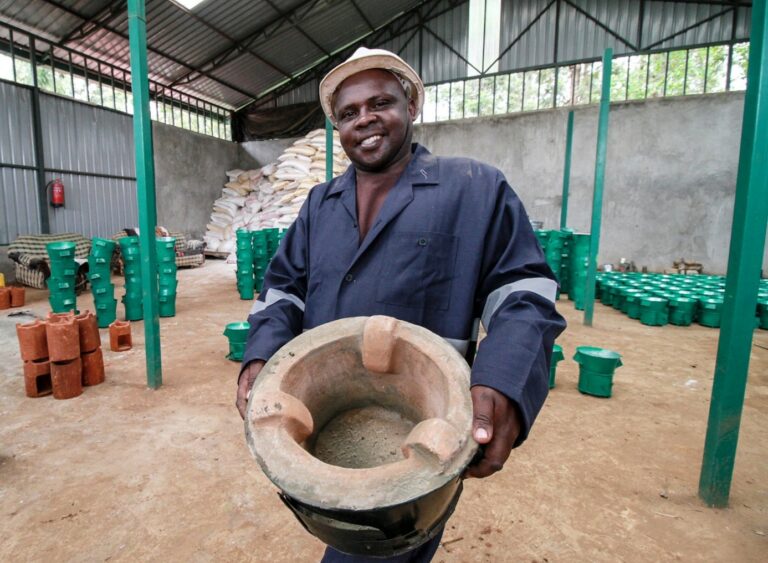
Bruce Kimanthi started his stove production business in 2008 in Tharaka-Nithi County, Kenya, building on his background in ceramics from his polytechnic studies. He began with a monthly output of 2,000 liners. Thanks to the trainings in supply chain management and marketing, his business has since expanded, now producing 5,000 liners per month. This was also made possible by the construction of a second ICS workshop next to his previous one. It enabled the mechanization of ICS production processes and provided him with more storage space to deliver on larger order quantities. Looking to the future, Bruce aims to explore additional energy-saving solutions in the market to further diversify his product range.
The project introduced us to a spraying machine. Before, we could paint 50 stoves per day, but now we can do up to 500.
Bruce Kimanthi
These stories show how local entrepreneurship, combined with targeted support, creates lasting impact – not only by expanding businesses but also by improving lives, creating jobs, and offering new perspectives for families and communities. In 2024 alone, over 1.5 million clean cookstoves were sold through the project.
